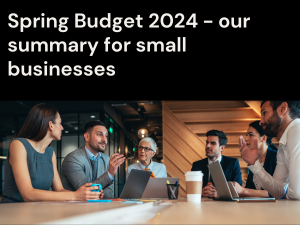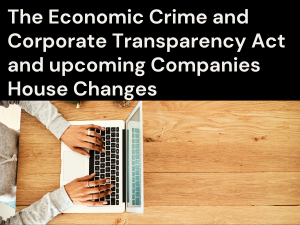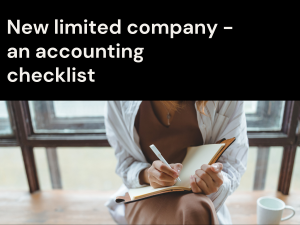The short answer is no. You don’t need an accountant to support with your Self Assessment tax return and if your finances are uncomplicated and you’re confident you can manage the task yourself, there’s no reason to seek support.
However, there are many benefits to using an accountant to complete your tax return, particularly if you feel out of your depth or are too time-poor to action the task yourself.
Many people also look to an accountant as a way to save money as an accountant can help to maximise tax relief by claiming for all allowable business costs and therefore reduce your tax bill.
So, if you find yourself dreading completing your tax return or want to save money, seek the support of a qualified accountant. We’ve listed below the benefits of having the help of a professional when it comes to your tax return.
Cost Savings
An accountant will help maximise your allowable business expenses – their expertise means they know what can be claimed so they are often able to claim for expenses you’d bypass if you were completing the return yourself. Using an accountant to complete your tax return can therefore reduce the amount of tax you need to pay and save you money.
Accuracy
An expert accountant will make sure your tax return is prepared accurately and is compliant with HMRC. As mentioned, they will know what can be claimed as expenses and what can’t. They will also be up to speed on the latest tax laws and regulations.
Having someone knowledgeable complete your tax return provides peace of mind and the reassurance that you won’t be faced with any penalties!
Saves time
Completing your tax return is not always a quick job, especially if you don’t know what you’re doing. There are things that need to be considered, which all take thought, for example:
- Calculating your rental profits or sole trade income ensuring you capture all income and expenses incurred during the year. It’s important to keep details of the calculations too in case HMRC checks your tax return.
- Adding all the information to HMRC’s Self Assessment tax return software can be very time consuming – there are multiple screens to click through and at times what feels like a never ending list of questions. Not only can it be confusing if you’re not au fait with your tax affairs, but it can also be very time consuming.
- If you get stuck completing the return you may need to contact HMRC – well sadly these days that usually involves a 45 minute wait on a phone line or online chat – and maybe worse if you’re calling near the deadline. An accountant can speak to HMRC on your behalf saving you from needing to make the call!
For a relatively low cost you can have a professional accountant take this task off your hands. Think of all the revenue-generating work you could do with Self Assessment off your plate or time you could spend doing the things you love instead!
This is even more true if your return is complex with various sources of income to take into consideration!
Support
If you’ve hired the help of an accountant they can assist with any queries you might have during the tax year which might impact your tax return. For example, a new tax code you’ve received that you’re unsure about or a letter from HMRC that has you scratching your head.
You can take these queries straight to your accountant rather than trying to work out the answers and any tax implications yourself.
Expert advice
An accountant will be able to provide you with expert advice tailored to you and your situation.
For example; If you’re self-employed an accountant will be able to advise you on whether or not there are advantages to going limited instead.
Without the expertise of an accountant, the likelihood is you’ll keep doing what you’ve always done even though better options may be available to you.
Forward planning
With sight of your finances, a quality accountant will use the information from the current tax year to best advise you on ways to strengthen your position for the following year.
For example, if your income is expected to be above £100,000 they may discuss the tax benefits of pension contributions to help mitigate the 60% tax trap.
Alignment if the accountant is already dealing with your company affairs
If you have an accountant who is already dealing with your company affairs there are benefits to them also dealing with your Self Assessment return. Why?
Because by having full visibility of your company and personal position they can take a holistic view to optimise your tax affairs.
As outlined there are many reasons to seek the support of a qualified accountant when it comes to your Self Assessment tax returns from saving you time, to being on hand to offer expert advice. They will help to make the process smooth, painless and penalty-free.
If you’d like to speak to us about supporting with your Self Assessment tax return do get in contact, we’d be more than happy to provide a quote.
FAQs relating to Self Assessment tax return
How much do accountants charge for Self Assessment UK?
The charge for support with a Self Assessment tax return will depend on the accountant, as prices may vary depending on who you speak to. At Raw, our Self Assessment prices start from £250, if you’re interested in receiving a quote from us, do get in contact.
How long does a Self Assessment take to complete?
The length of time it takes for a qualified accountant to complete a Self Assessment tax return will depend on the complexity of the individual’s finances. Typically, you wouldn’t expect a standard Self Assessment tax return to take more than 3 hours to complete from start to finish.
When is Self Assessment tax return due?
The deadline for submitting a Self Assessment tax return is midnight on 31 January.
When are Self Assessment payments due?
The first Self Assessment payment is due on 31 January. If you are within the payments on account regime a second payment on account is due on 31 July.
Do I need to submit a Self Assessment tax return?
You are required to submit a Self Assessment tax return if…
- You’re self-employed earning more than £1,000
- You’re a director of a Limited company
- You’re a partner of a Partnership
- You earn more than £100,000
- You need to pay the High Income Child Benefit Charge because you receive child benefit and one or both parents income is above £50,000.
- You have untaxed income, eg rental property income
If you’re unsure about whether you need to submit a Self Assessment tax return you can head to the gov.uk website to check






